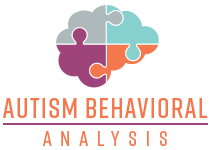The 2019 Autism Collaboration, Accountability, Research, Education, and Support (CARES) Act reproves and increases the benefits first presented in the 2006’s Combating Autism Act. The Autism CARES Act guarantees financial support for research activities in areas such as autism behavioral analysis, prevalence tracking, service provision, and other autism treatment resources for parents provided by federal and local governments.
Autism is a neurobehavioral disorder that manifests in conditions such as persistent challenges in speaking, nonverbal communication, social relations, and obsessive, repetitive, or restricted behaviors.
Insights Into the Autism CARES Act
The new law raises the yearly budget on autism-related activities to $369.7 million until the year 2024. CARES Act’s new provisions enlarge the scope of government programs to include a call for a report on health and welfare.
It’s not always easy to read and understand legislation—not all of us are lawyers. However, here is a breakdown of four main areas where the Act will have a significant impact.
Allocates Money for Brand-New Research
A considerable part of the CARES Act includes continued financing of biomedical research grants. Furthermore, it offers support for research focusing on discovering even better life-enhancing treatments for autistic people. The Act supports relevant research through bodies such as NIH, CDC, and HRSA.
Boosts Service Quality for Autistic People
These researches mainly aim at bettering the conditions for people with autism. However, there remains a crucial emphasis on research around both early intervention and identification. The Act also supports the quest for other essential evidence-based programs and services, such as:
- Nutrition therapy programs
- Community-based behavioral interventions and support
- Recreational services
- Social skills work
- Personal safety
Paves the Way for Long-Term Support
ASD is a lifetime condition; therefore, support for managing it is essential. Since awareness around autism was not always as wide-ranging as it is currently, the Autism CARES Act expands government support programs to adults who may have experienced misdiagnoses in the past.
The establishment of these programs guarantees their support throughout their life. It offers a parent of autistic children peace of mind to know their loved one will have government support, even when they’re adults.
Guides the Federal Government’s Autism-Related Programs
The CARES Act strengthens the Interagency Autism Coordinating Committee (ACC) by increasing its membership. This expansion brings on board self-advocates with autism who offer a personal viewpoint to the team and representatives of prominent groups and societies in the field.
The committee ensures the federal government conducts field surveys and briefs the Congress on the country’s current autism services situation.
What Families With Autistic Loved Ones Should Know
So, what does CARES Act mean for your child? This law benefits people with autism since it aims at providing better services for both adults and children living with the disorder. This can mean access to nutrition therapy or social skills development programs that provide continuing support.
The Act authorizes the federal government to fund autism research to develop more effective drugs. Additionally, evidence-based facilities also receive monetary support for the management of the symptoms of ASD.
The CARES Act is a win for the autism community; however, there needs to be more attention to autism sensitization and research.
Having a child with ASD in the household can be stressful, devastating, and even expensive. Families with children who have this illness should link with other families in similar circumstances and seek specialized medical help. Reputable facilities have various autism spectrum disorder treatment programs that can address your specific concerns.
Conclusion
Don’t let autism disrupt the life of a loved one. The Autism CARES Act ensures that many specialists and nationwide advocacy organizations can offer advice, resources, information, networks, and support for autistic people and their families.







